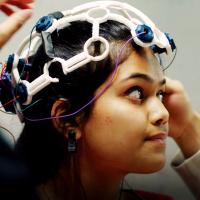A start-up called Empatica has created a watch that can sense when an epileptic user is having a seizure. The device will then send the data to the individual’s smart phone, which in turn will notify a pre-selected caregiver via phone call or SMS message. Having someone on call at all times to assist an individual with epilepsy can be incredibly comforting to that person and can even save his or her life. Additionally, the watch also keeps detailed records of each seizure which can be used by doctors to accurately prescribe medicine. What’s next for Empatica? They want to build a forecasting feature to monitor how sleep patterns, stress, and other biological signs trigger symptoms, in order to alert users when a seizure could be imminent.
The smartwatch that could save lives
Up Next
